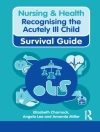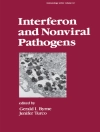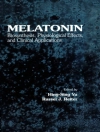It has been over a decade since the First International Symposium on Hormonal Carcinogenesis convened in 199 1. Since then, the field has rapidly expanded with considerable progress in both breast and prostate cancers; while ovarian and endometrial cancer have been hampered, in part, due to the absence of suitable hormone-mediated animal models. While knock-out, transgenic, and cell-culture systems have been extremely useful in identifying specific genelprotein alterations and the ensuing pathways affected, the precise molecular mechanisms whereby sex hormones elicit their oncogenic effects still remain elusive. Moreover, despite the considerable progress made in breast cancer research, the exact role of progestins in the presence or absence of estrogen in breast growth, differentiation, and malignant transformation is lacking. Elucidating the incipient molecular alterations in earlylpre-invasive lesions elicited by these hormones is a growing important focus of this field. The main purpose of these Symposia has been to address vital questions that impact our understanding of the causation, dependency, progression, resistance, and prevention of hormonally-associated cancers. We are indebted to the Scientific Advisory Board members who worked with us reviewing and offering suggestions to finalize the scientific program. We offer special thanks for the guidance and support of Dr. Gerald Mueller. His wisdom played an indispensable role in maintaining the excellence of these Symposia. We also acknowledge the numerous external reviewers that worked diligently to revise and improve the quality of the manuscripts. We are very grateful to Ms. Tandria Price.
Table des matières
State of the Art Lectures.- Breast Cancer I: Progesterone Action.- Breast Cancer II: Mechanisms of Genomic Instability.- Early In-Situ Lesions: Breast and Prostate.- Promotion/Prevention of Hormone Cancers.- Prostate I: Androgen/Estrogen Action.- Prostate II: Androgen Receptor Dependence/Resistance.- Endometrium/Ovarian/Colon.- Communications.- Epidemiology/Human Derived Studies.- Breast Cancer.- Endometrial/Cervical Cancer.- Prostate Cancer.- Hormone Metabolism & Cell/Molecular Biology.- Breast Cancer.- Endometrial Cancer.- Ovary/Pituitary/Kidney/Liver Cancers.- Prostate Cancer.












